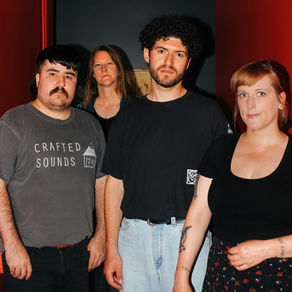If I Can’t Have Love, I Want Power
- BLIGATORY
- Oct 13, 2022
- 3 min read
Updated: Jun 18, 2023
by Halsey

Released August 27, 2021 via Capitol Records
Reviewed September 7, 2021
Top tracks (based on community voting)
Belles in Santa Fe (38%), I am not a woman, I’m a god (35%), Girl is a Gun (31%)
After just a year since her last studio album, Manic, Halsey has re-emerged with arguably her most interesting project to date. Tapping into Nine Inch Nails’ Trent Reznor and Atticus Ross for production, If I Can’t Have Love, I Want Power, is an amalgamation of post-industrial and post punk instrumentals with painstakingly evil lyrics. Halsey—no longer singing about how she is the victim of love—is taking misogyny, both internalized and institutionalized, head on. She steps into the role of being a villain, so long as it leaves her with complete autonomy over her art, her child, and herself. This new direction for Halsey proves to be just the adjustment she needed. Her writing has reached a new level, as she dives into deeper themes than she has prior. Unlike a lot of her previous work, Halsey has put together her most cohesive effort to date both sonically and lyrically. If I Can’t Have Love, I Want Power casts Halsey in a different light that shows she is much more comfortable with herself, her life, and the music she is making. – Pablo (8.5/10)
On her fourth studio album—the first since becoming a mother—Halsey’s shift toward a more rock-oriented style pays dividends. With Trent Reznor and Atticus Ross serving as producers, If I Can’t Have Love, I Want Power takes influence from the industrial sounds the duo’s known for on their work as Nine Inch Nails; rattling drums and distortion become a mainstay, creating a high-octane element to Halsey’s sound. Her aesthetic has always been edgier than her sound, and this feels like a natural step forward; the singer/songwriter assumes the roles of an assertive frontwoman atop instrumentals that eschew her typical pop sound for a mixture of alt rock, pop punk, and grunge—even drum n’ bass makes an appearance on “Girl is a gun.” Amidst this, Halsey features more tender and heartfelt cuts as well; “Darling,” “1121,” and “Ya’aburnee” are closer to folk and art pop with their minimalist approaches that position her emotive vocals as the focal point. Regardless of this myriad of stylistic approaches, Halsey’s songwriting is what truly shines through on If I Can’t Have Love, I Want Power. Confronting both institutionalized and internalized misogyny, through a lens that unapologetically embraces the full range of emotions that women are often shamed for, creates an experience that leads to Halsey at her most assertive yet. –Dominick (8.2/10)
If I Can’t Have Love, I Want Power allows Halsey to fully realize the potential of two of her best attributes: Lyrics and raw emotion. A lot of her early work featured underdeveloped themes and vapid love songs, but her talent was still evident. An album with a clear identity and a different perspective on the concept of parenthood seemed to be the best possible move for her lyrically. Fully produced by Trent Reznor and Atticus Ross, Power’s instrumentals are fresh out of a Fincher film, while others sound like NiN outtakes (in the best way); some take roots in drum’n’bass. Regardless of how an individual track may sound, the production is gorgeous and it never sounds incohesive, despite its variety. After a rocky start to her career, it seems Halsey has finally found her groove by changing her sound up on If I Can’t Have Love, I Want Power. – Alan (8.1/10)
Pablo: 8.5/10 | Dominick: 8.2/10 | Alan: 8.1/10
Cam: 8/10 | DeVán: 7.5/10 | Peter: 6.5/10







Comments